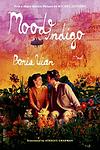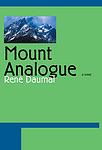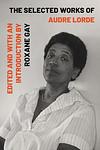The Greatest "Modernist, Existentialist, Fiction, Surrealism" Books Since 1900
Click to learn how this list is calculated.
This list represents a comprehensive and trusted collection of the greatest books. Developed through a specialized algorithm, it brings together 305 'best of' book lists to form a definitive guide to the world's most acclaimed books. For those interested in how these books are chosen, additional details can be found on the rankings page.
Genres
Modernist literature is a category of books that emerged in the early 20th century, characterized by a break from traditional literary forms and a focus on individual experience and perception. Modernist writers experimented with language, form, and structure, often using stream-of-consciousness narration and fragmented storytelling to convey the complexity and ambiguity of modern life. Themes of alienation, disillusionment, and the search for meaning are common in modernist literature, which reflects the cultural and social upheavals of the time. Overall, modernist literature is a challenging and thought-provoking genre that continues to influence contemporary literature and culture.
Existentialist literature is a genre that explores the meaning and purpose of human existence, often through the lens of individual experience and subjective perception. These books often delve into themes of freedom, choice, and responsibility, and may challenge traditional notions of morality and societal norms. Existentialist literature can be introspective and philosophical, and may offer readers a unique perspective on the human condition and the search for meaning in a complex and often chaotic world.
Surrealism is a genre of literature that explores the subconscious mind and the irrational aspects of human experience. It often features dreamlike imagery, unexpected juxtapositions, and a sense of the uncanny. Surrealist literature seeks to challenge conventional thinking and push the boundaries of reality, often blurring the lines between fantasy and reality. It is a genre that celebrates the power of the imagination and encourages readers to question their perceptions of the world around them.
Countries
Date Range
Reading Statistics
Click the button below to see how many of these books you've read!
Download
If you're interested in downloading this list as a CSV file for use in a spreadsheet application, you can easily do so by clicking the button below. Please note that to ensure a manageable file size and faster download, the CSV will include details for only the first 500 books.
Download-
1. Franz Kafka: The Complete Stories by Franz Kafka
This collection of stories offers a comprehensive look at the work of a renowned author, known for his surreal and often unsettling depictions of modern life. The stories explore themes of existential anxiety, guilt, and absurdity, often through narratives in which ordinary people face extraordinary, inexplicable circumstances. The collection showcases the author's unique style and his profound influence on 20th-century literature.
The 170th Greatest Book of All Time -
2. Labyrinths by Jorge Luis Borges
"Labyrinths" is a collection of short stories and essays that explore complex themes of infinity, parallel universes, and the blurred lines between reality and illusion. The narratives often feature protagonists who are scholars or librarians, trapped in surreal, metaphysical landscapes. The author's unique writing style combines elements of magical realism, philosophy, and detective fiction, creating an intricate web of narratives that challenge the reader's perception of reality and fiction.
The 304th Greatest Book of All Time -
3. The Unnamable by Samuel Beckett
"The Unnamable" is a complex, stream-of-consciousness narrative that explores themes of existence, identity, and the nature of reality. The protagonist, who lacks a clear identity, is trapped in a void and continually questions his existence and reality. As he grapples with his own consciousness, he attempts to tell his story, but constantly doubts and revises it, creating a cyclical, fragmented narrative. The novel is known for its challenging, abstract prose and its exploration of existentialist themes.
The 470th Greatest Book of All Time -
4. Hopscotch by Julio Cortázar
This avant-garde novel invites readers into a non-linear narrative that can be read in two different orders, following the life of Horacio Oliveira, an Argentine intellectual living in Paris with his lover, La Maga. The story explores philosophical and metaphysical themes, delving into the nature of reality and the human condition, while also examining the struggles of intellectual and emotional life. The second part of the novel takes place in Buenos Aires, where Horacio returns after La Maga disappears, and where he grapples with his past, his identity, and his place in the world.
The 530th Greatest Book of All Time -
5. Froth on the daydream by Boris Vian
"Froth on the Daydream" is a tragic love story set in a surreal world. The protagonist is a wealthy young man who marries a woman he loves deeply. However, their bliss is short-lived when she develops a strange illness - a water lily growing in her lung. As her health deteriorates, so does their wealth and social standing, leading to a bleak and heartbreaking end. This novel is a poignant exploration of love, loss, and the harsh realities of life, all set within a fantastical and dreamlike landscape.
The 934th Greatest Book of All Time -
6. Story of the Eye by Georges Bataille
This novel is a provocative exploration of the dark side of human nature, featuring two teenage characters who engage in increasingly bizarre and violent sexual games. Their actions, driven by their obsession with eroticism and death, lead them into a world of perversion and madness. The narrative is filled with explicit sexual content and shocking imagery, reflecting the author's fascination with the transgressive and the taboo.
The 999th Greatest Book of All Time -
7. Watt by Samuel Beckett
The novel is a darkly comedic and absurdist exploration of the human condition. It follows the eponymous character, Watt, as he serves as a domestic servant in a bizarre, isolated household. Throughout the narrative, Watt struggles to make sense of his surroundings, the odd behavior of his master, and his own existence. The book is filled with philosophical musings, wordplay, and surreal humor, offering a unique and challenging reading experience.
The 1431st Greatest Book of All Time -
8. Moravagine by Blaise Cendrars
The novel follows the adventures of an eccentric, violent, and mentally unstable protagonist who is released from an asylum by his psychiatrist. The pair embark on a chaotic journey across Europe and America, encountering a variety of strange and often dangerous situations. The narrative explores themes of insanity, violence, and the human condition, offering a dark and surreal critique of modern society.
The 2117th Greatest Book of All Time -
9. Insatiability by Stanisław Ignacy Witkiewicz
The novel is a dystopian narrative set in a future where a new Asian empire has conquered Europe. The story follows a young Polish man who, while initially indulging in hedonistic pursuits, becomes increasingly disillusioned with the world around him. As the new empire introduces a mysterious substance known as Murti-Bing pills, which create a sense of contentment and indifference in the populace, the protagonist grapples with the loss of individuality and the erosion of human spirit in society. The narrative is a critique of totalitarian regimes and the dangers of mass conformity.
The 2443rd Greatest Book of All Time -
10. Mount Analogue by René Daumal
The book is a novel that combines surreal adventure with philosophical inquiry, telling the story of an expedition to a mysterious, inaccessible mountain that represents a spiritual quest. The mountain, which connects Earth to Heaven, can only be perceived by those who have refined their inner vision. The narrative follows the explorers as they embark on their journey, facing various challenges and revelations that mirror the inner landscapes of human consciousness and the pursuit of enlightenment. As the climbers ascend, the novel delves into themes of reality, symbolism, and the pursuit of the absolute, ultimately leaving the reader with a contemplation of the unattainable peak of human knowledge and experience.
The 7168th Greatest Book of All Time -
11. Selected Works by Alfred Jarry
"Selected Works" by Alfred Jarry is a compilation of the most significant writings from a French author known for his pioneering work in the Absurdist and Surrealist movements. The collection showcases a range of Jarry's literary output, including plays, essays, and novels, with his most famous character, Père Ubu, often taking center stage. Jarry's work is characterized by its satirical edge, inventive language, and the subversion of traditional literary forms. His influence extends beyond literature into the realms of theatre and the visual arts, where his ideas have continued to resonate with avant-garde movements throughout the 20th century and beyond.
The 7168th Greatest Book of All Time
Reading Statistics
Click the button below to see how many of these books you've read!
Download
If you're interested in downloading this list as a CSV file for use in a spreadsheet application, you can easily do so by clicking the button below. Please note that to ensure a manageable file size and faster download, the CSV will include details for only the first 500 books.
Download









